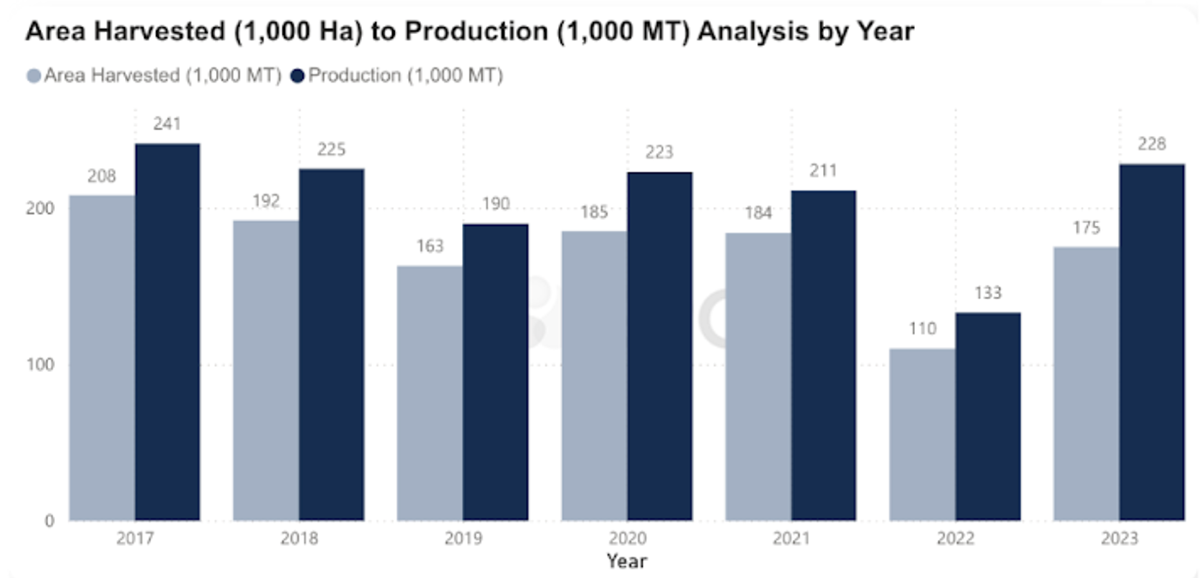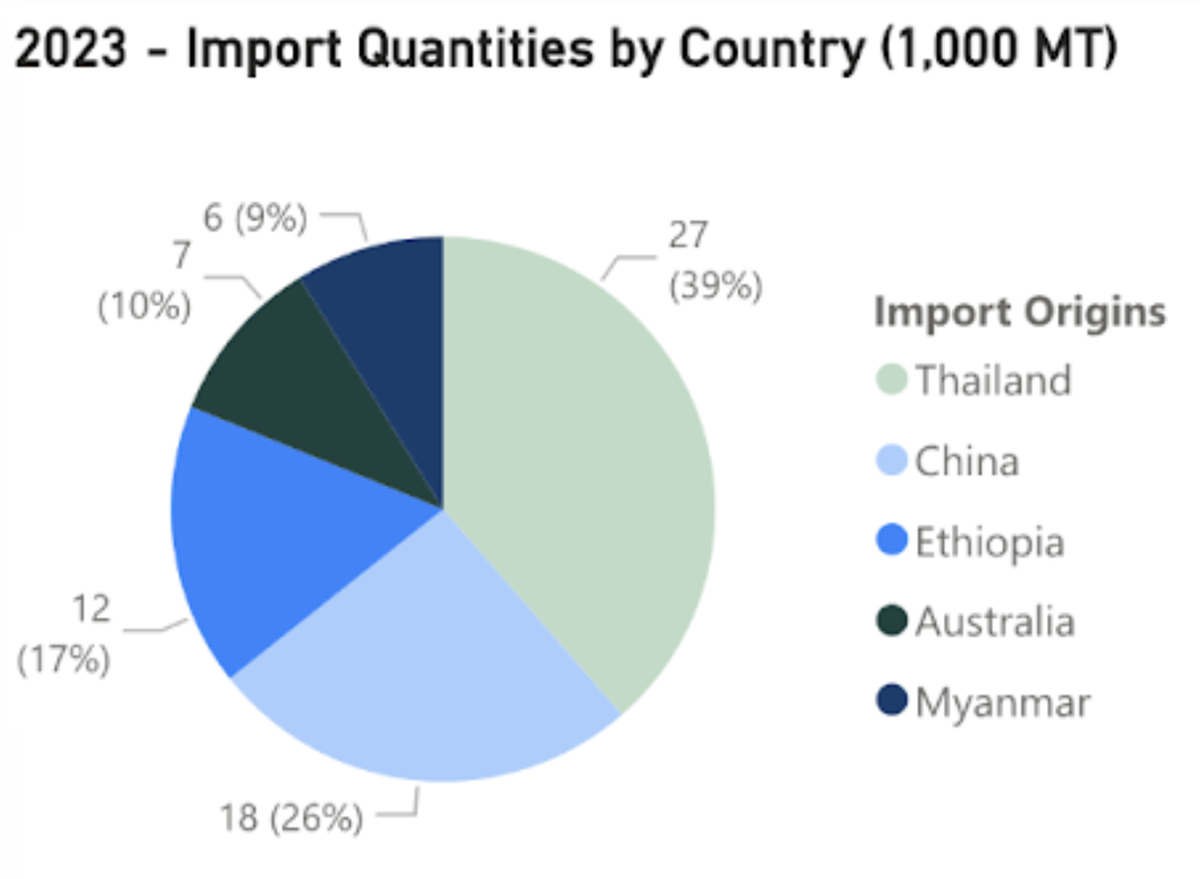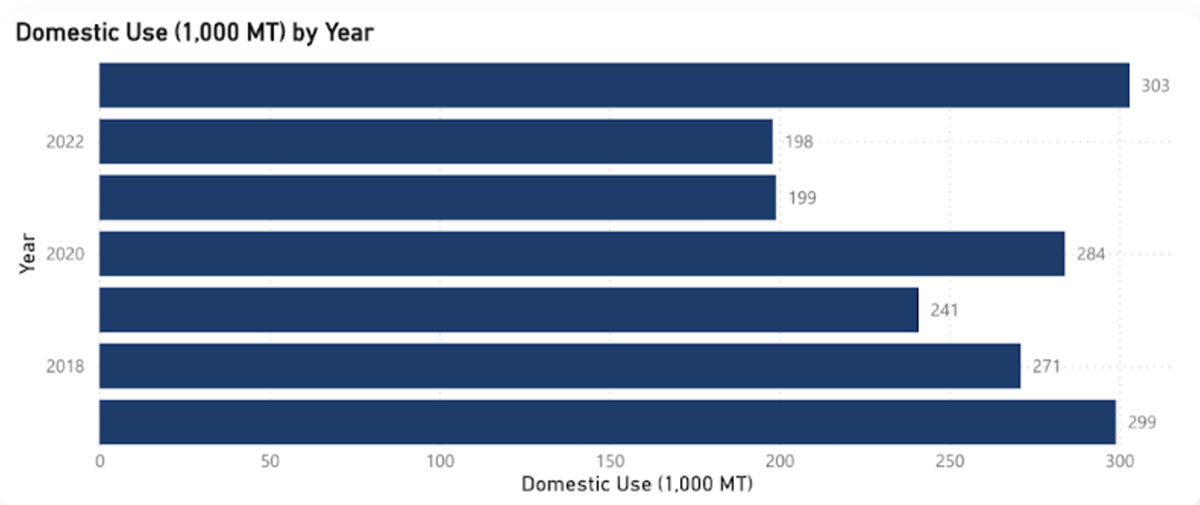June 13, 2024
Soumaya El-Filali speaks to Vony Sintiawati, founder of PT Sinar Indo Agro Pulses about the country’s mung and kidney bean production and imports as well as the different market segments for imported and domestic beans.



Vony Sintiawati, founder of PT Sinar Indo Agro Pulses
Certainly. The last couple of years, specifically 2021 and 2022, were challenging for pulse production in Indonesia. We experienced significant crop failures due to pests, floodings, El Nino and other adverse conditions. This forced farmers to change their crop selections, such as planting cucumber instead of red beans in the highlands. This led to a significant decrease in mung bean production, causing prices to rise.
In 2023, we saw a significant turnaround. Production rebounded strongly due to favorable weather and increased farmer interest. The quality of the produce was notably higher. The market demand grew more slowly, leading to lower prices and an oversupply that has carried over to 2024.

Indonesia mung bean production 2017-2023
Mung beans are our most demanded imported pulse, with imports reaching 108 thousand metric tons to meet specific market requirements. The government has recognized the mung bean market's growth potential, especially since it became one of the highest-valued exported food products in 2020. The demand from food processors and sprout producers is consistent and robust, leading to a production to import ratio of 1 to 0.47.

Indonesia mung bean import origins 2023
Well, it's essential to recognize that local and imported pulses cater to different market segments. For example, locally produced mung beans, which tend to be larger and duller, are primarily aimed at the export market, while the smaller, shinier imported mung beans are preferred in the local market, particularly for use in food processing like sprouts, flour, and baby food.
Additionally, our locally grown red kidney and green beans are mostly consumed fresh, while the imported varieties, which are dried, find their place in snacks and baby food markets. The competition between local and imported pulses is less about direct rivalry and more about aligning supply with quality standards to meet market demands. Our focus is on understanding these market needs and improving our products to fulfil the specific requirements of each segment.
From the perspective of local farmers, this competition serves as a motivation to enhance their productivity and the quality of their produce. We are confident that many farmers are eager and willing to adopt practices that improve their outputs and make their products more competitive in the market.

Indonesia mung bean domestic use 2017-2023
The pulse market in Indonesia is on the brink of significant growth, especially after the COVID-19 pandemic, which heightened the trend toward healthy food consumption. However, the challenge lies in the fact that only about 20% of the Indonesian population has a robust understanding of healthy eating and lifestyles. There's a clear need for increased education to highlight the benefits of pulses and how to incorporate them into a nutritious diet.
Looking forward to 2024, we anticipate a sharper focus on food security from the newly installed government. We plan to leverage this focus to collaborate with various stakeholders, aiming to fortify the pulse market. Our goal is to broaden our production base, diversify sourcing areas, and ultimately scale up the market.
The fragmented nature of Indonesian pulse farming, with many smallholders, poses challenges for uniform quality. Currently, our primary focus is to strengthen our ecosystem within the pulse value chain, ensuring robust coordination between all stakeholders, including both public and private entities. Looking ahead, our strategic plan involves establishing an integrated smart farming system for pulses.This initiative aims at harnessing precision farming to deliver consistent, high-quality produce to the market. Ultimately, we're not just aiming to develop a sustainable business model; we also aspire to be a beacon for the next generation of farmers. By demonstrating effective farm management and innovative practices, we hope to inspire and guide future agriculturalists towards success.
We've been able to work with local farmers to mitigate some of these issues with advanced technology and processing methods. We engage with them through pilot partnerships, focusing on sustainable sourcing, quality seed introduction, education on market needs, and technology integration to tackle climate change challenges. Early adopters have shown receptiveness to our initiatives
PT Sinar Indo Agro Pulses is a bean and pulse supplier focused on producing peeled mung beans and mung bean flour under the brand Hikobean in Jombang district, East Java. Indonesia contributes significantly to the production of pulses but often falls short of meeting quality standards. It aims to address the gap in high-quality bean production in Indonesia, leveraging technology and market insights to enhance quality and meet both domestic and global demands.

Indonesia mung bean / kidney bean / Indonesian pulses / Myanmar / green mung beans / Sinar Indo Agro Pulses / Vony Sintiawati
Disclaimer: The opinions or views expressed in this publication are those of the authors or quoted persons. They do not purport to reflect the opinions or views of the Global Pulse Confederation or its members.